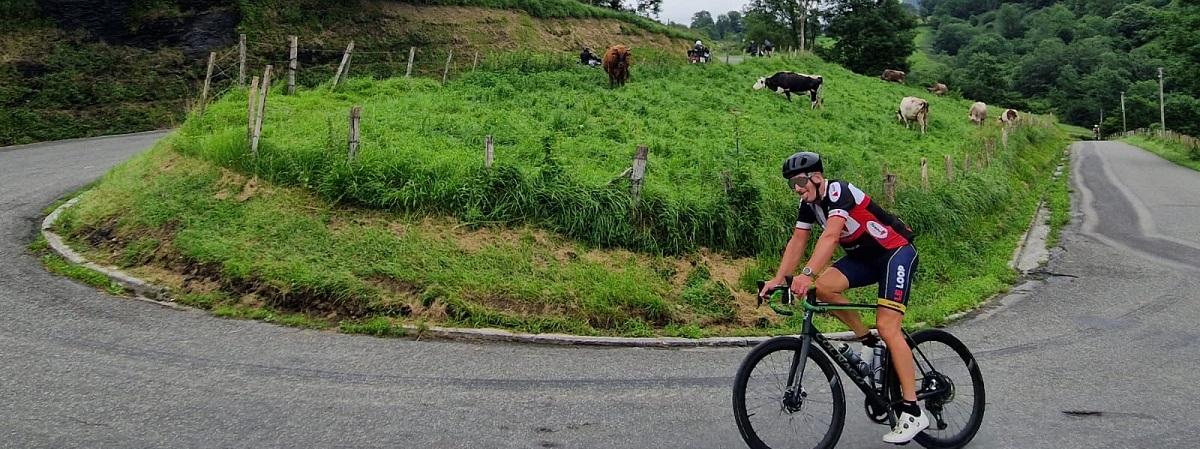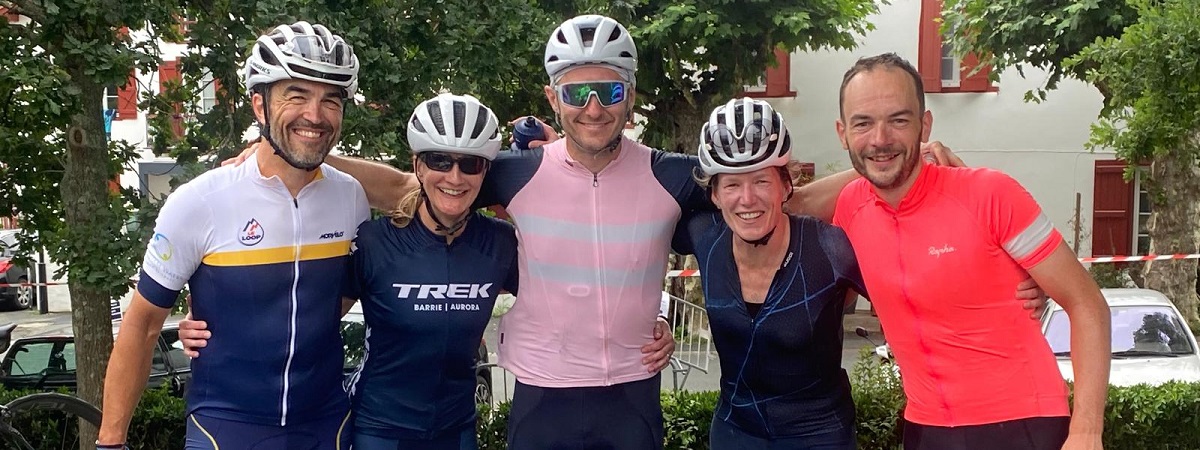Monthly motivation - January

January is a tough month if you’re a cyclist in the northern hemisphere, and doubly so when you’ve signed up for an event in 6 months time and need to get the miles in… but don’t worry, we’re in this together and there’s time…
We’ve put together some reading suggestions to help with motivation when you’re not on a bike but before we get to that, here are a few bits of general advice from our alumni cyclists; their answers when we asked what advice they’d give to future Loopers.
Make a plan
We gave you some advice on planning in the last blog but this comes up so often that we thought we’d say it again. If you don’t have a plan yet, make one! It’ll give you confidence that you’re doing enough, it’ll give you confidence that the goal is possible and it’ll help you stay on track on the tougher days.
Accept that you might have to change the plan
Whether it’s motivation, time or something else that’s getting in the way, if you realise that you’re not sticking to your training plan in January, review it and work out what needs to change. Be honest with yourself now and tweak your plan so that February sees you back on track.
The more you train, the more you’ll enjoy it
With the obvious exception of the few cyclists at risk of training too much (usually out of fear or panic; in which case, see the next point), all repeat riders say that they’ve enjoyed Le Loop the most in the years they trained well. That doesn’t mean you have to be super-fast; it just means you need the confidence to know that you trained, and that you’re ready, and that you won’t break after your first full stage/long climb. Knowing that you can increase how much you enjoy your challenge might help find the motivation to go out for that extra training session each week!
Don’t worry about the other Le Loop cyclists
Every first-time Looper worries that the other cyclists will be faster, lighter, better (and did we say faster?) but every alumni cyclist says that they wish they’d known that they didn’t need to worry; that everyone is really friendly, that they’d find people at their speed and that within 2 hours of getting on their bike, all of these unnecessary worries would be gone.
Please believe this one! The advice is to train well, but don’t panic.
It all counts – every ride, every spin
The amount of cycling ahead of you might seem daunting but alumni say that they were amazed how much their fitness and/or endurance improved due to commuting or another regular cycling commitment. Whether it’s 8 or 10 miles a day to/from work, or a regular weekly slow ride with a friend, alumni-advice is to try to incorporate more miles into your week, regardless of distance or speed; do the miles however they’re best for you.
Mountain bike in winter
It’s not unlikely that you’ll have to cancel a few winter outdoor rides because the weather is just too horrible. But a mountain bike or trail ride is still possible in almost any weather and most trail centres have easy routes which don’t require so much technical skill and can be part of a great winter training plan. They often have bikes for hire too so you don’t need an extra bike and it saves you the hassle of washing it afterwards!
Sportives
The last piece of advice we’d like to share from our alumni is how many of them make the most of local sportives as part of their training plan. Have a quick search for events (from March there will be plenty around the country) and sign up for a few.
Seek motivation from words!
If you’re struggling to imagine yourself riding the roads of France this summer and can’t quite get your head around what you’ve taken on, we recommend having a good read of some of the blogs our riders have written in the past. We’ve saved a few of our favourites here …
Or seek out some of the inspiring books about cycling that will be sure to fire you up! Here are a few suggestions:
Merckx: Half Man Half Bike, William Fotheringham
It’s half a century since a boy from Belgium won his first Tour de France, but Eddy Merckx still casts a long shadow over our sport, and is agreed by most to be the greatest cyclist that ever lived. William Fotheringham’s definitive biography is a brilliant account of what made Merckx Merckx, and will deepen your appreciation of what it took to win eleven Grand Tours, plus just about every other race going.
Le Fric: Family, Power and Money: the Business of the Tour de France, Alex Duff
To quote Sarmid, one of Le Loop’s volunteer doctors, “Superb read, I couldn’t put it down”. Starting with a cash drop by an English spy in occupied Paris in 1944, there’s a long and fascinating story to tell. We haven’t read it yet but we’re expecting a copy in our stockings.
Where there’s a Will, Emily Chappell
The wonderful Emily Chappell was our lead cyclist for four years and her second book describes her 2016 Transcontinental race win and so much more. This is about endurance – both in life and in competitive unsupported long-distance cycling. Emily is a fantastic cyclist, and also a superb writer. You might also enjoy her 1st book about being a London cycle courier: “What Goes Around”.
French Revolutions, Tim Moore
A chronicle of Moore’s ill-advised attempt to ride the entire route of the 2000 Tour. It’s an indulgently hilarious read – just the thing to raise your spirits in the dark winter months – and his almost complete absence of training will make you feel smug about how much further than him you’ve already got. Well done you.
Endure: Mind, Body and the Curiously Elastic Limits of Human Performance, by Alex Hutchinson
Endurance is all in the mind – or so we’re told by some athletes, whereas others insist that, vital though it is to build mental strength, it is always ultimately the body that will give out first. The answer, of course, is that it’s rather more complex than this.
Have a great month and we’ll be back in February!
Bon Courage!


